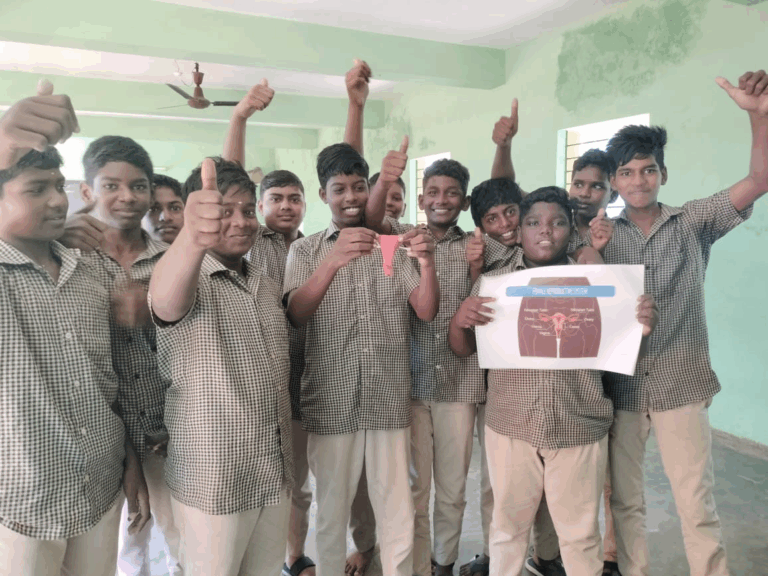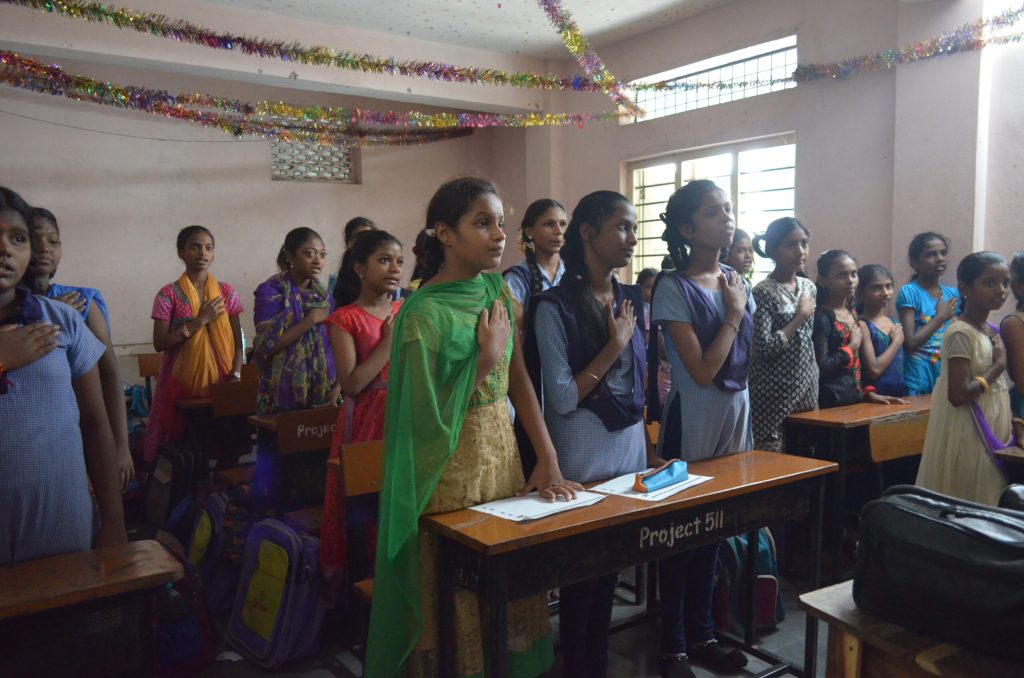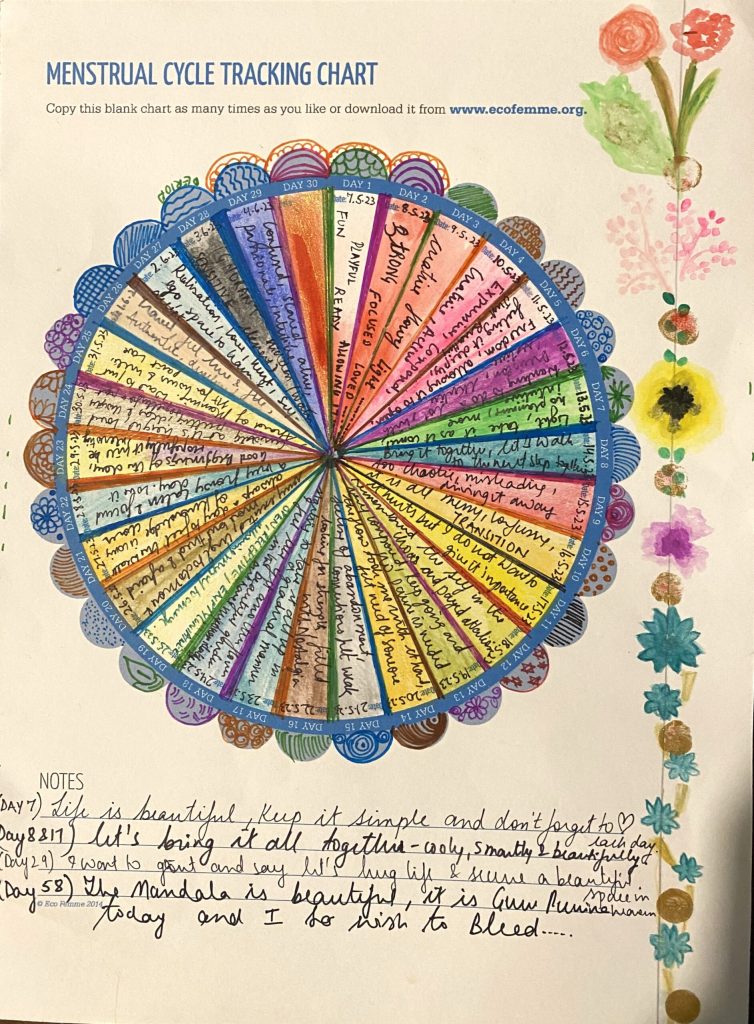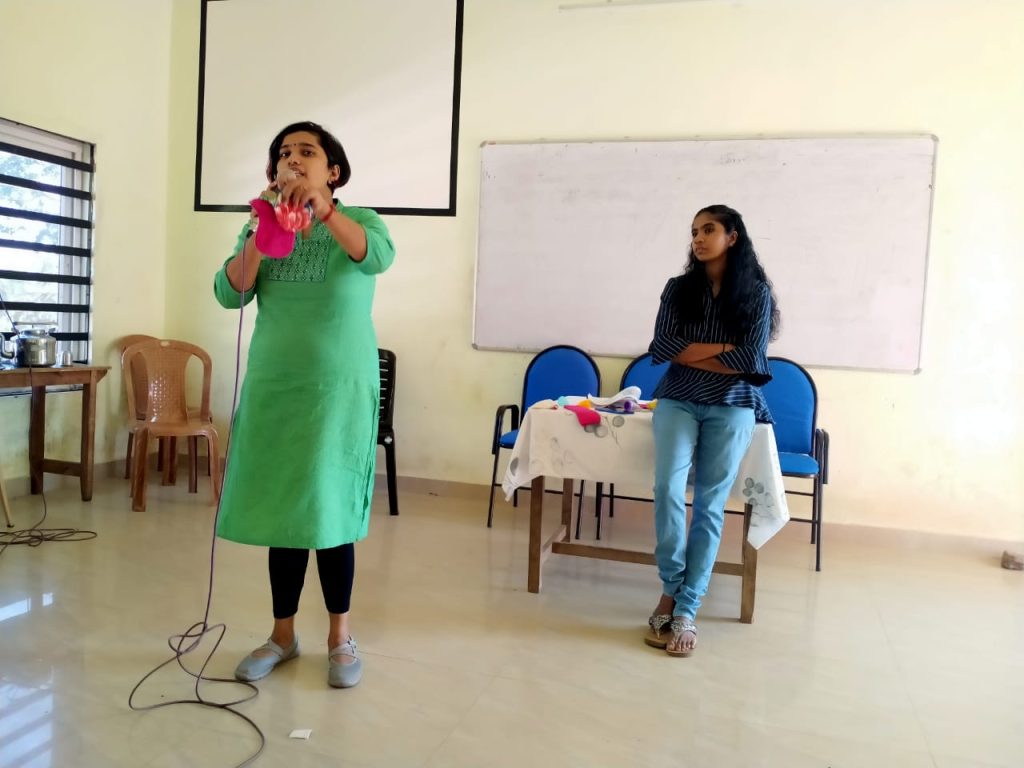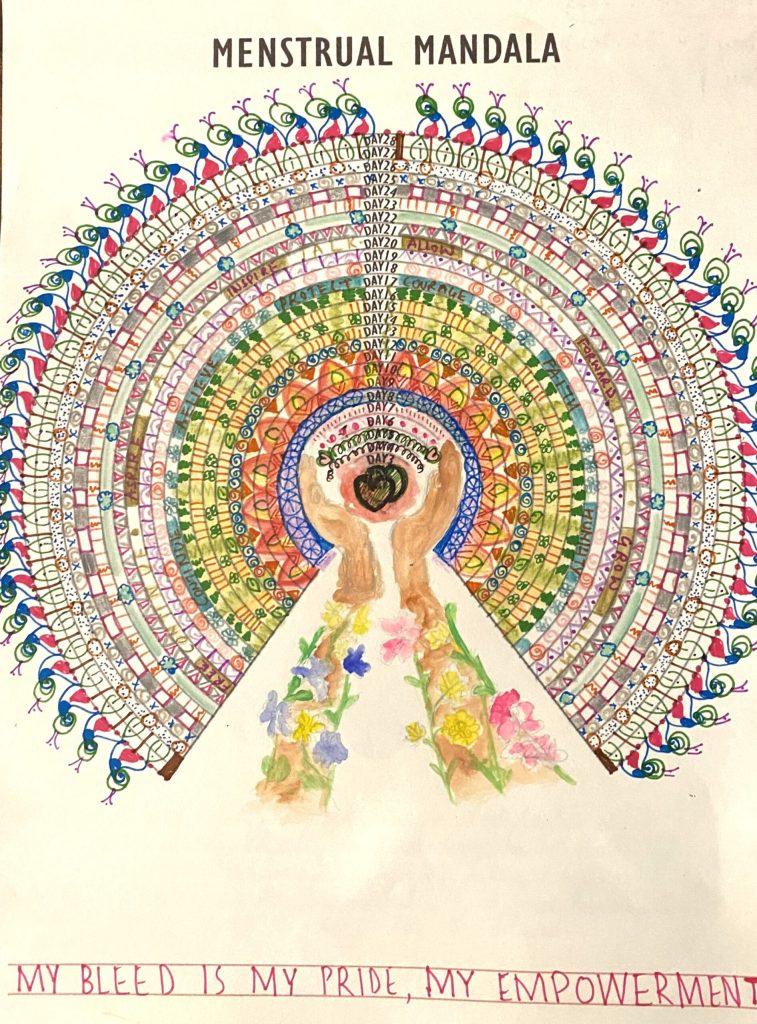When Boys Learn About Periods – A New Conversation Begins
Part 1 – The First Conversation: Breaking the Silence at Vedha School
Date: 30 October 2025
Facilitator: Kalvi, Eco Femme
Participants: 12 boys, Class 9 – Vedha Government Aided High School
Opening a New Chapter
As part of Eco Femme’s effort to engage boys in menstrual and puberty education, I conducted a session for 12 boys from Class 9 at Vedha Government Aided High School on 30 October 2025.
The intention was to open up space for honest conversation, curiosity, and empathy — helping the boys understand their own development and learn accurate knowledge about menstruation, a topic often surrounded by silence and misconceptions.
This session was also designed to build a support system for girls, by helping boys understand and care with respect.
The Opening Circle
We sat together on the floor in a circle — a setting that naturally felt open and comfortable for a small group.
We began with one minute of silence to settle our minds and bodies.
I felt a mix of nervousness and happiness — nervous because this was my first time facilitating with boys, and happy because it was finally happening. I had an outline ready in case I lost my flow, but my main aim was to stay connected with the group.
We started with Eco Femme’s handkerchief exercise, where everyone imagined placing their shame, fear, guilt, and uncomfortable feelings into a handkerchief, tied it up, and threw it out of the window. This activity helped release tension and made it easier for the boys to open up.
I introduced myself as their sister and asked if they were happy to have me as one. They smiled and agreed. I explained that this conversation would help us build an educated and kind society, and that we would hold it with mutual respect.
Before beginning, we made three agreements together:
- Any question can be asked — there are no right or wrong ones.
- No teasing or criticizing each other during or after the session.
- We keep what we share within the group.
We also agreed that it should be a two-way conversation, where everyone participates and stays engaged.
Breaking the Ice
We began with a short action game that brought energy and laughter into the room. This immediately helped break the ice — the boys relaxed and started feeling more at ease.
Understanding Puberty
I asked what physical changes they had noticed in themselves from around 8 or 9 years onwards. We went body part by body part — from head to neck, then to the belly, and down to the toes.
The boys said they noticed pimples, moustache, beard, Adam’s apple, and voice change. For girls, they mentioned pimples and breast growth.
They were initially shy, smiling and nudging one another to speak. I reassured them that everything they said was normal. When I brought up changes in genital size, I smiled nervously — and the boys laughed, saying, “Akka, we are okay with you saying it, you are the one who’s shy!”
They were right, and that light moment reminded all of us that normalizing these conversations is a shared learning process.
—————————————————————————————————————————————————————————————-
When Boys Learn About Periods – A New Conversation Begins
Part 2 – Discovering the Truth: What Boys Think About Periods
Date: 30 October 2025
Facilitator: Kalvi, Eco Femme
Participants: 12 boys, Class 9 – Vedha Government Aided High School
From Curiosity to Understanding
After the giggles settled and confidence began to bloom, we deepened our exploration. What started as a talk about puberty soon opened into a broader conversation about society, empathy, and menstruation — a topic new and often confusing for the boys.
Reflecting on Society
I asked them what problems they see around them. The boys mentioned child abuse, harassment, and domestic violence.
When I asked who is usually involved in such issues, they replied quietly, “Mostly men.”
Then I asked, “So what can we do about it?”
One boy responded, “We will grow into better men because we are having this conversation today.”
That moment touched me deeply. It showed that even a simple dialogue can spark awareness and intention for change.
We also spoke about attraction toward the opposite sex. The boys shared that in their class, they say things like “His Allu” (his girl). I explained that attraction is completely natural and happens due to hormones, but that it’s not something to feel guilty about. I reminded them that as we grow, both our bodies and emotions evolve — and it’s okay to take time before making big life decisions.
What the Boys Thought About Menstruation
When we moved into the topic of menstruation, I wanted to understand what they already knew. Their responses were striking — sincere, curious, and filled with common misconceptions.
Boy 1:
“As girls get their period, they lose a lot of blood from their female reproductive organ. Because of that, they go to the hospital to clean the dirty blood from the uterus. As a result, the uterus gets cleaned. They get their period every month.”
Boy 2 (Sabarivasan):
“In a month, for every 18 days, a girl bleeds to clean her uterus. Those are the most preferable days to have reproduction.”
Boy 3 (Jai Priyan):
“Even if a girl gets her period at a young age, if we get her married to someone, she will not be able to become a mother as her body and mind are not mature enough. Even if the baby is born, it will be with deformity.”
Boy 4:
“Period means girls get a problem where they continuously pass urine and cannot control it, so they wear pads or diapers during those days.”
Boy 5:
“Period means girls get stomach problems and fall sick.”
When I asked where they had learned these ideas, they said from television, overheard conversations at home, older boys, and peers.
I told them they had gathered fragments of truth mixed with misunderstanding — and that this session was exactly for that reason: to fill the gaps with accurate knowledge.
Learning Together: What Really Happens
Using a female reproductive system chart, we began learning the correct names of each organ. We spoke the words aloud — uterus, vagina, ovaries — to make them feel normal and unshameful.
Then we learned how menstruation really happens:
it’s part of a natural monthly cycle preparing the uterus to nurture a baby. If no baby is formed, the nutrient-rich lining sheds — that’s what we call a period.
The boys listened carefully and asked thoughtful questions. One said, “So, if periods don’t happen, we wouldn’t exist?”
I smiled and replied, “Exactly — menstruation is the reason all of us are here.”
We also talked about how having a period doesn’t mean a girl is ready to have a baby — her body and mind are still developing. And when they grow up, as men, they must always respect women’s choices and never put pressure on them.
A good man supports, listens, and cares.
—————————————————————————————————————————————————————————————–
When Boys Learn About Periods – A New Conversation Begins
Part 3 – Becoming Allies: How Understanding Builds Respect
Date: 30 October 2025
Facilitator: Kalvi, Eco Femme
Participants: 12 boys, Class 9 – Vedha Government Aided High School
Learning to Be Supportive
After learning the science behind menstruation, we turned to a deeper question — how can boys support girls and women in their lives?
Their answers came slowly, then more confidently:
- By not teasing or making jokes about periods.
- By showing understanding and empathy.
- By helping mothers with housework instead of leaving it only to them.
We also had a small dialogue about household balance — that at school, boys and girls share responsibilities equally, but at home, mothers often do the most work. When asked, “What kind of men, brothers, sons, and friends will you be?” they reflected quietly before responding.
Reflections from the Boys
At the end of the session, I asked what they had learned and how they felt. Their responses were deeply moving — filled with understanding, kindness, and maturity beyond their years.
Priyan (14 years):
“We learnt that period is not a bad thing. It’s a natural process. We should not shame or tease girls. We should support them and be there for them. I learnt the names of the reproductive organs and how the reproductive system works. I also learnt how a baby is formed. This class was very useful. I will support my mother, sister, and future wife during their period and be emotionally available.”
Mugilan:
“I learnt how a baby is formed.”
Dishant:
“I learnt about the menstrual cycle and the different organs of the reproductive system.”
Priyan (again):
“Till today I thought period blood was dirty. Today I learnt it’s nutrition-rich blood that helps form a baby. If the baby doesn’t form, that blood has no role and so period happens.”
Gogul:
“I learnt how long a period lasts — between 2 to 7 days.”
Their reflections showed clear learning — not only factual understanding, but also emotional growth.
The Closing Oath
We ended the session by taking an oath together:
“As good males, we will respect all women and girls — our sisters, mothers, classmates, and friends.
We will support them when they are on their period.
We will not tease or shame them, and will behave as respectful males in society.”
It was a powerful and heartfelt moment. Every boy said the words with sincerity, and the room felt lighter — like a collective breath of understanding had been released.
Reflections as a Facilitator
This session left me with a strong sense of hope. The boys’ innocence, curiosity, and openness reminded me that real change begins with honest conversation.
They entered the room unsure and hesitant, but left with new understanding and pride in their learning. It was not just a lesson on menstruation — it was a step toward empathy, equality, and respect.
If 12 boys can sit together and talk about menstruation with sincerity, the future can indeed hold more compassionate men and a kinder world.
About This Initiative
This session at Vedha Government Aided High School is part of Eco Femme’s effort to engage boys in menstrual and puberty education — to help them grow into empathetic, informed young men who form a support system for girls.
By including boys in these conversations, we are nurturing a generation that understands that menstruation is not just a women’s issue — it’s a shared human experience that deserves respect, awareness, and care.
🌿 End of Series – “When Boys Learn About Periods: A New Conversation Begins”
By Kalvi Karunanithy
